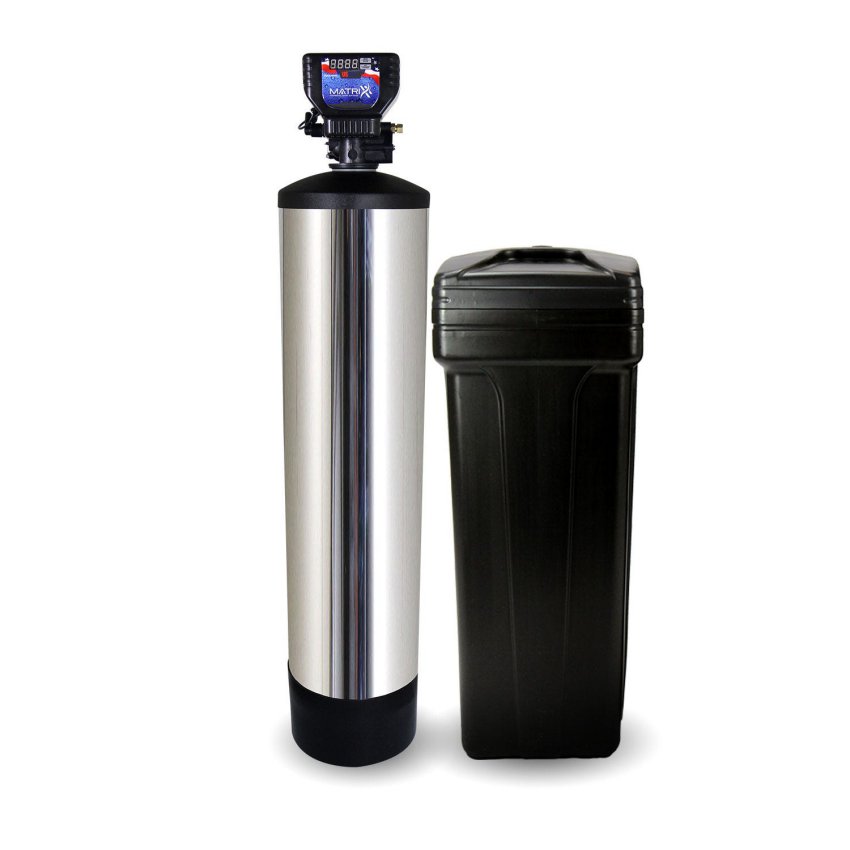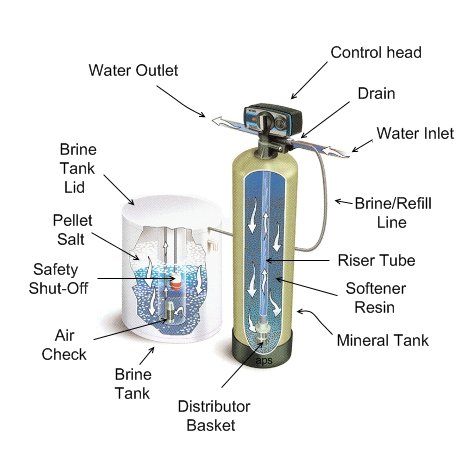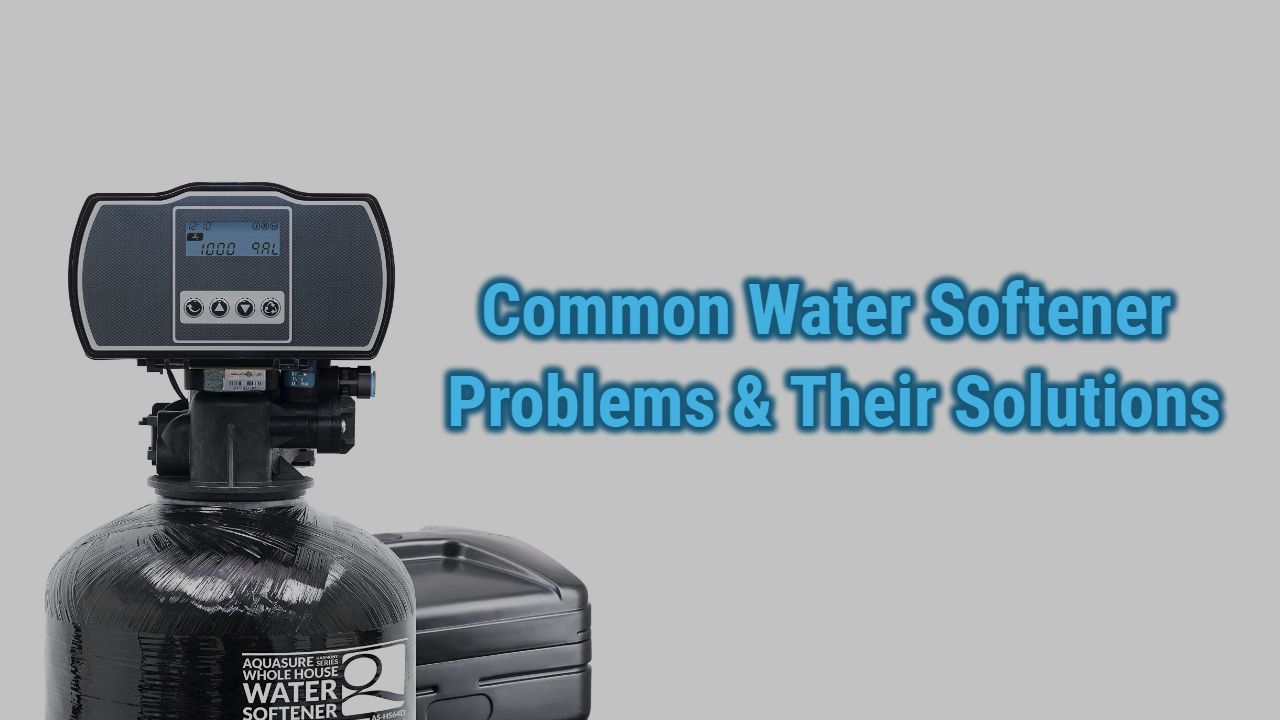Like, we know how common and widely reverse osmosis filters are used, water softeners are also widely used in the United States. RO and water softener both are different and have different functions. Water softeners are majorly used to make hard water soft.
Hard water contains many minerals like calcium and magnesium, etc. And to remove and make the water soft, a water softener is used. Generally, sodium and potassium are used to soften the water. Hard water is considered to be harmful and dangerous if consumed for a longer time. Hard water can have multiple health effects on our bodies.
Today, we are going to discuss the problems faced with water softeners and how to rectify and solve the problems. We will provide you with each detail to troubleshoot your water softener.
Table of Contents
What is a Water Softener?

A water softener is a whole house filter system responsible for removing hardness in water and making the water soft. A water softener uses the ion exchange system to soften your water. Water hardness can destroy your plumbing systems, white stains can be visible, and they can also clog your water pipes. To get rid of all these issues, a water softener is used.
Types of Water Softener
- Salt-based water softener
- Salt-free water softener
- Dual-Tank based water softeners (these two types of softeners are most common and widely used)
Most common water softener problems encountered and possible solutions

- Broken water entry valve– when this entry valve is damaged, it can hamper water flow to the brine tank. This can lead to Flooding issues.
- Softener is cold– when the life of the water softener is over, parts and connection wear and tear out. You need to check these parts regularly and replace them if needed.
- Faulty placement of the float valve– this can build up unnecessary water, and flow will become minimum; placing the float valve just below and not at high levels can solve the problem.
- Softener dispensing brown water– this happens when your plumbing system is totally gone, brown water is the indication to change your plumbing systems and pipes.
- Water softener not using salt– this happens when your salt resin tank is getting blocked and not using salt for the softening process. Sometimes it is found that ion exchange is not taking place. Rectify the resin bed and exchange systems for a solution to this problem.
- Manual operating error– this usually happens when a man-made operation is not as per requirement. Any issue can take place. So it is always advised to read the guide and tutorial before using your systems.
- Brine tanks may have low water content– the whole system may be working well, but brink tanks running on low water can give you problems. This can not be solved with DIY, and it needs professional assistance.
- Low water pressure and noise – your pumping system needs to get checked. If it is overworking, then get it replaced. In case of loud noise, replace the motor, or get it checked for other issues.
- Water leakage– this is a very common issue and can be found out and solved with DIY. Leakage generally takes place in the tank or connecting pipes. Check these areas and get rid of the problems.
- Softener not regenerating– when the regeneration panel gets damaged, or it is not working, then this problem is encountered. Replace the regeneration panel to get back to the normal regeneration cycle.
Note– All these common problems and solutions are standard, and they can vary from softener to softener due to different brands and different designs. We recommend you check every detail, manual and tutorial before going through the troubleshooting.
Troubleshooting and correcting other common issues
| PROBLEM | CAUSE OF PROBLEM | SOLUTION |
|---|---|---|
| Hard water | The softener is completely broken | Replace the softener |
| The system not producing enough soft water | same | |
| The system is not regenerating properly | Broken brine float tank | replace broken flota tank |
| clogged brine valve | unclog | |
| problem with brine switch | check brine switch | |
| No/Low regeneration | broken timer or misconfigured timer | replace timer |
| salt bridging | - | |
| salt mushing | - | |
| injector being clogged | check and replace the injector | |
| drain control is restricted | - | |
| low water in the brine tank | maintain the required water level | |
| too much water in the brine tank | maintain the required water level | |
| worn-out brine tank | repace brine tank | |
| motor failure | replace motor | |
| Brown water in the brine tank | rusting problem | change the pipe or remove the rust |
| dirt in salt | replace with fresh salt | |
| Discoloured soft water | bad resin bed | replace resin bed |
| rust in water | remove rust | |
| System draining continuously | wrong controller setting | correct the setting |
| water pressure very high | maintain standard pressure | |
| restricted drain control | free up drian vontrol | |
| clogged injector | de-clog injector or replace | |
| Low water pressure | system size is too small | get larger system |
| plugged control valve | - | |
| worn-out resin belt | replace resin bed | |
| The system makes a lot of noise | can be normal or motor issues | professional help or replace the motor |
Conclusion
We have briefly discussed all the possible problems that you may face with a water softener. We have also given you all the possible solutions to the problems. However, we would like to bring to your knowledge that every softener has its own design and brand, and it differs in many ways.
In some cases, our given solution and problems may not be suitable for your softener due to many factors. We advise you to check the manual guide and tutorial, or you can contact your company for professional help in troubleshooting the issue.
Furthermore, we have covered what a softener is, various problems and solutions for the same. We have also added various softeners, just for knowledge’s sake. Hope you like this informative article designed especially for our needful viewers and readers.
